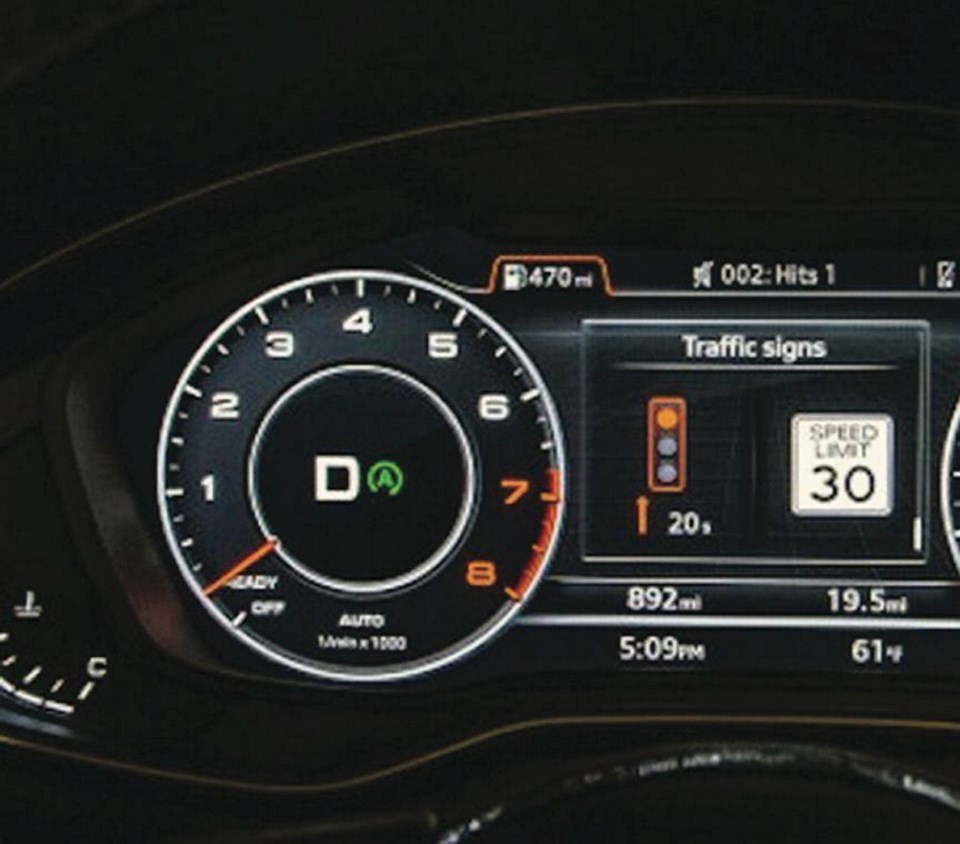Audi’s Traffic Light Information system (known as TLI), now operative in 10 U.S. cities, marks the official start of what’s to come, digitally, for automobiles and their connected future. As a precursor to the integrated technologies, this one shows the potential of vehicle-to-infrastructure communications. Select 2017-’18 Audi vehicles can now use the system at 2,250 intersections in cities across the United States. Launched in Las Vegas in 2017, TLI reads real-time data from traffic signals to tell drivers by way of a countdown timer when the lights will change. Future applications of the technology could work with vehicle start/stop systems, provide navigation advice and even automatically moderate speed and stopping ahead of a red light.
Solo certified in U.S. market
On the heels of announcing it won U.S. certification in May, Electra Meccanica Vehicles Corp. of Vancouver delivered its first Solo single-passenger electric commuter vehicle to an unidentified customer in Los Angeles, Calif. Legally regarded as a motorcycle, the fully enclosed three-wheeled Solo has a 160-kilometre range between charges and sells for about $19,800, reports Automotive News Canada. Until now, Electra Meccanica’s Solo sales were restricted to British Columbia as it awaited wider Canadian and U.S. certification for road use. “To be federally certified in the United States now opens the Solo to the biggest electric-vehicle market in North America,” said company CEO Jerry Kroll. Electra Meccanica is also developing the Tofino two-seat electric sports car and a faster, higher-range Solo.
VW offshoot unveils charging network plans
The company founded by Volkswagen to make restitution in the wake of the 2015 diesel-emissions scandal has shown where in the U.S. it plans to build a nationwide network of fast-charging stations. As part of Electrify America’s Cycle One infrastructure plan, more than 2,000 chargers will be installed at 484 sites in 17 metro areas and on highways in 39 states. All will be “operational or under construction” by 2019, the company said in a statement. Electrify America has already announced partnerships with retail chains Walmart and Target to host some of the chargers.
Campagna develops electric T-Rex
Without confirming it will actually be produced (prediction: it will) Campagna Motors of Montreal has released photos and some details of an electric version of its reverse three-wheeled T-Rex sports trike that’s being developed with Zero Motorcycles of California. The electric T-Rex prototype can go about 295 kilometres miles in city driving, and about 225 kilometres combined city/highway between charges, and can be recharged in two to nine hours, depending on the charger voltage. Two electric motors drive the rear wheel with 140 horsepower and 232 pound-feet of torque. Despite gaining 70 kilograms over the standard model, it’s quicker: Zero-to-100 km/h shoots by in 3.2 seconds and the top speed is 180 km/h.
On-demand autonomous-shuttle service to start in Texas
After-work happy hour will never be the same in Frisco, Texas, writes auto-data website The Car Connection, with the advent of self-driving vans that customers can call — on-demand through a smartphone app — for rides between a complex of office buildings and an entertainment district near the Dallas Cowboys’ training centre. Drive.ai of California said it would launch the service in July to run within a “geo-fenced” part of town. Drive.ai “envisions its service as a solution to “last mile” mobility situations “that are out of reasonable walking distance range.” Using a fleet of Nissan NV200 self-driving passenger vans, Drive.ai will make the service free to use during the first six months of operation.
Zapped
Customer orders for the Hyundai Ioniq Electric sedan are on hold in Canada because of a global battery-supply shortage, reports alternative-vehicles website Green Car Reports, which said it confirmed with Hyundai Canada a memo to customers detailing the battery shortage.



